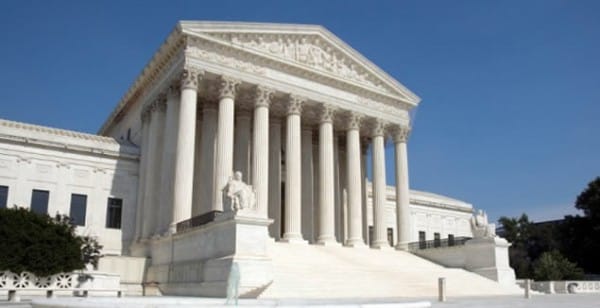The 2012 Election and the Future of the Supreme Court


Whoever occupies the White House after January of 2013 will probably get to make at least one key appointment affecting the long-term future of the Supreme Court. The current bench is rapidly graying. On the liberal side of the Court, Ruth Bader Ginsburg will be 80 next year, while on the right, Justice Scalia will be about the same age by the end of the next presidential term. The swing voter on the Court, Justice Kennedy, is a few months younger than Scalia. The odds of a vacancy by 2016 are good.
To see how the next appointment could change the high court, it may be helpful to look at two younger members, Justices Sotomayor (appointed by Obama) and Justice Alito (appointed by Bush). The party platforms have pointed to these judges as exemplars. How do they differ?
The first point to notice is just how often they vote differently. In the last Supreme Court term, they disagreed in 64% of the cases, not counting the easy cases where the court was unanimous. They were in full agreement in only a quarter of the non-unanimous cases, and the remaining cases involved at least some disagreement over the reasoning.
Their perspectives often collide, even though they have somewhat similar experiences as prosecutors and lower court judges. For instance, as the Washington Post reported, they clashed in a case involving massive overcrowding and poor medical care in California prisons:
Sotomayor asked the attorney for the state: “When are you going to avoid the needless deaths that were reported in this record? When are you going to avoid or get around people sitting in their feces for days in a dazed state?”Alito, on the other hand, warned of a crime wave if the prisoners were released. When the court sided with the inmates, he warned in his dissent that “the majority is gambling with the safety of the people of California.”
Obviously, despite their similar professional careers, the two justices have drawn very different lessons about the problems facing society.
Perhaps it goes without saying, but Sotomayor and Alito have been on opposite sides of high profile cases. Last year, they disagreed completely about the constitutionality of "Obamacare" and about key provisions of Arizona’s crackdown on undocumented aliens. They have also disagreed about corporate campaign expenditures and reproductive rights.
Suppose President Romney has the opportunity to replace one of the liberal Justices, or swing voter Anthony Kennedy, with someone like Justice Alito. In that event, the court would move sharply to the right on such issues as gay rights, discrimination law, and reproductive rights. In contrast, suppose President Obama is able to replace a staunch conservative (or Justice Kennedy) with another Justice Sotomayor. In that case, the court would move left on issues like campaign finance, federal regulatory power, and voting rights.
Presidents make many important decisions, but few of those decisions have such lasting effects as appointments to the Supreme Court. A justice appointed in 2014 could easily be on the Court until 2034 or even 2044 or later. This is one area where the choice between Romney and Obama will make a deep imprint on history.


